Ce serait une première en Europe pour un pays disposant d'une industrie navale militaire. L’Allemagne envisagerait de lancer un appel d'offres européen dans le cadre du programme MKS 180 de navire de combat polyvalent. C’est en tout cas ce qu’affirme l’agence Reuters, qui dit s’appuyer sur une source au sein du ministère de la Défense allemand.
Get Started for FREE
Sign up with Facebook Sign up with X
I don't have a Facebook or a X account

 Your new post is loading... Your new post is loading...
Current selected tag: 'ALLEMAGNE'. Clear
Germany has offered Turkey the opportunity to participate in the Interactive Defence and Attack System for Submarines (IDAS) missile project, IHS Jane's has learnt. ANALYSIS
Key Points
The Royal Norwegian Navy (RNoN) is preparing to conduct its first test-firing of the IDAS (Interactive Defence and Attack System for Submarines) submarine-launched short-range precision missile system. The planned firing by one of the RNoN's six Ula-class (Type 210) diesel-electric submarines (SSKs) follows on from similar evolutions conducted by the German Navy submarine force in 2008 and 2011. The Norwegian test will take place in 2015, according to an officer from Germany's naval headquarters, who also told IHS Jane's that the German Federal Ministry of Defence (MoD) is expected to decide soon whether to initiate an acquisition programme for an IDAS-like missile system.
Patrick H. 's insight:
Présentation du missile IDAS à changement de milieu :
Under a deal reached with Israel in November, Germany earmarks up to 115 million euros ($143 million) for four new corvette warships for the Israeli Navy • Contract could be finalized before the end of this year, German government spokesman says. Germany plans to finance part of the cost of four new corvette warships for the Israeli Navy made by German firm Thyssen Krupp, under a deal struck with Israel in November, the German government said on Monday. Following approval by German parliament's budget committee, the contract could be finalized before the end of this year, government spokesman Steffen Seibert said. As part of its atonement for the Holocaust, Germany is committed to Israel's security and has often helped pay for the cost of military equipment such as submarines. The mass-circulation Bild am Sonntag newspaper reported on Sunday that Berlin had earmarked up to 115 million euros ($143 million) for the warships -- which would cost around 1 billion euros ($1.2 billion) in total. Seibert declined to comment on the size of the German contribution.
Patrick H. 's insight:
En septembre dernier, il semblait qu'Israël avait choisi la voie d'un appel d'offres international après un premier échec d'une consultation restreinte avec l'Allemagne : Les allemands ont sans doute eu des arguments plus convaincants pour ce 2ème tour. Attendons toutefois la signature officielle du contrat.
Oct 25 (Reuters) - German tank manufacturer Rheinmetall is close to buying steel group ThyssenKrupp's marine systems business, according to Wirtschaftswoche. The two companies are about 100 million euros ($126.70 million) apart on a possible price for the division which includes submarines and surface vessels, and a deal could be reached as early as the end of this year, the magazine reported on Saturday, citing an unnamed person familiar with the matter. ThyssenKrupp said it was currently not in talks with Rheinmetall. Duesseldorf-based Rheinmetall declined to comment. Analysts have said Rheinmetall is aiming to bulk up in response to efforts by German rival Krauss Maffei Wegmann (KMW) to combine with French rival Nexter, a move designed to help them withstand defence-spending cuts. Two months ago, Germany's economy minister urged the arms industry to consolidate with European peers, making clear that years of expanding exports were over. (1 US dollar = 0.7893 euro) (Reporting by Tom Kaeckenhoff, writing by Andreas Cremer, editing by William Hardy)
Patrick H. 's insight:
On parle de cette étape de restructuration dans l'industrie navale de défense allemande depuis septembre dernier :
Restricted use: Because of cracks at the rear can not currently fly a large part of the helicopter fleet of the German Navy. Also an EU mission is concerned. The operational readiness of the German Navy is limited by the failure of many helicopter. Of all 22 aboard helicopters of the type Sea Lynx Mk88A the Navy is currently no single "flight clear". This is clear from a document from the Department of Defense, is available to the Süddeutsche Zeitung. The failure also affects the participation in the EU mission "Atalanta" in the Horn of Africa. A "clarification of the facts and a return to normal flight operations" were "this year is not to be expected," it says in the submission from the Department equipment, information technology and use. The Sea Lynx has been used since 1981 and is primarily intended for hunting submarines, as well as for transport and rescue missions. It accounts for about half of the Navy's helicopter fleet. The other half consists of 21 helicopters of type Sea King. In the Ministry template it is, June 16, was "the planking through crack was found in the tail cone" on board the frigate Lübeck on a Sea Lynx one about 20 inches long. Then you've decided to "discontinue flight operations with this type of helicopter until further notice" and had initiated for all Sea Lynx "special controls". This would have resulted in three other helicopters "a similar damage pattern through cracks in the tail cone" and "extensive complaints" for additional helicopters. Failure would mean "significant capacity loss for task force" On August 7, was then been released under conditions of flight operations. So the "Chief Engineer for Marine air vehicles" have reduced the maximum take-off weight and placed additional controls. "The necessary repair measures, however, are continuing," it says in the document continues, "so that none of these aircraft is currently flying clear". The "average rate Clear Stand" lies so far in 2014 at 35 percent, which roughly corresponds to the value of the year before. The requirements are met lead "in a boarding to a reduction of the usable flight hours" by about 75 percent. The submission from last week is intended for the new armor Secretary Katrin Suder, the (CDU) to rearrange the armor being on behalf of Minister Ursula von der Leyen. The document states that the Naval Air Command have "on September 3, 2014, the Naval Air Wing 5 instructed to prepare for the planned from September 18, 2014 Embarkation of two helicopters Mk88A on the frigate Lübeck for use 'Atalanta' set '. This failure means "a significant incapacitating for the task force and mission accomplishment." The matter was being investigated. The "additional maintenance and inspection costs due to the crack problem" bears the Bundeswehr . A ministry spokesman stressed in flight operations go before safety. At operation "Atalanta" in place of the Sea Lynx now an aircraft will used, the maritime patrol aircraft P-3C Orion.
Airbus Group envisage de vendre sa participation de 49% dans le spécialiste allemand des systèmes électroniques de sécurité et de défense maritime Atlas Elektronik dans le cadre de la réorganisation de ses activités, rapporte vendredi le quotidien Die Welt sur son site internet en citant des sources du secteur. Airbus Group (alors EADS) et le conglomérat allemand ThyssenKrupp avaient racheté Atlas Elektronik à BAE Systems en 2005, l'emportant alors sur Thales. Ce dernier s'était heurté à des résistances politiques en Allemagne face à la perspective de voir un groupe étranger entrer au capital d'une entreprise de défense. Die Welt écrit qu'Airbus devrait prendre dans les prochains mois une décision sur une éventuelle cession de ses parts et ajoute que ThyssenKrupp devrait disposer d'un droit de préemption. Airbus Group s'est refusé à tout commentaire et ThyssenKrupp a déclaré qu'il ne commentait pas les spéculations. Atlas a estimé qu'il appartenait à ses actionnaires de commenter l'article. Mardi, le ministre allemand de l'Economie Sigmar Gabriel a jugé que le secteur allemand de la défense devait s'engager sur la voie de la consolidation à l'échelle européenne pour assurer son avenir. Atlas Elektronik, qui produit entre autres des sonars, des capteurs, des armes marines ainsi que des systèmes de commandement et de contrôle des armes, a réalisé en 2013 un chiffre d'affaires de 441 millions d'euros, dont un tiers hors d'Europe, selon Die Welt. Le quotidien allemand explique que Thales pourrait l'approcher si Airbus décidait de céder ses parts.
Le Ministre de l'Economie allemand donne son approbation à la vente d'un nouveau sous-marin à Israël(Reuters) - Germany's Economy Ministry said on Wednesday that Germany's security council, which examines arms exports to non-NATO states, had approved the export of a submarine to Israel. Israel already operates German-built submarines, manufactured by ThyssenKrupp Marine Systems. The vessels are considered by Israel to be a vanguard against foes like Iran.
Patrick H. 's insight:
Il s'agit en fait d'un feu vert de M. Sigmar Gabriel pour le 3ème et dernier sous-marin de la série Dolphin 2 AIP. Plus de précision dans un article du journal allemand "Der Spiegel" : Le "Tannin" et le "Rahav" de cette même série ont déjà été livrés. Voir la publication de la "Newsletter navale" de l'an dernier :
TEL AVIV — Israel is backing away from a long-anticipated ship deal with Germany after failing to secure Berlin’s commitment to share some of the costs of the estimated $500 million buy. Instead, defense and industry sources here say Israel’s Defense Ministry is opening its four-ship offshore patrol vessel (OPV) procurement to international bidders, with requests for proposals likely by summer’s end. “The German option is off the table ... They’re not willing to contribute funding and, on top of that, the price they proposed is unacceptably high,” said a retired Israel Navy admiral familiar with the discussions. “After more than two years, it’s back to the beginning,” he said. “MoD is moving ahead with an international bid.” A recently retired, high-ranking MoD official confirmed the “setback” with Germany and preparations underway to compete the program. He declined, however, to speak on record or to provide details. “Nobody wants to talk about it; it’s too sensitive,” he said. Officials from both countries refused comment on the setback, which several sources attributed, on condition of anonymity, to German Chancellor Angela Merkel’s anger at the collapse of US-led Israeli-Palestinian peace talks. The Israeli MoD referred all questions to the office of Prime Minister Benjamin Netanyahu, where spokesman David Baker responded, “We have nothing to offer on your query.” Boris Nannt, a spokesman at the German Defense Ministry, said the Ministry of Economy was responsible for this issue, but a press liaison there referred queries to the Federal Foreign Office. In a written reply, Konrad Lax said, “The Federal Foreign Office cannot comment on issues concerning contracts involving private companies. Neither can it provide information on financing issues.” Israel’s interest in customized versions of the German-built Meko A-100 has been a top item on the bilateral defense trade agenda since 2009, first in stretch form as a low-cost alternative to the US littoral combat ship and more recently as a 1,400-ton platform for patrolling offshore energy assets. The Meko ships are built by ThyssenKrupp Marine Systems, the same Hamburg-based consortium contracted for Israel’s six, heavily German-subsidized, Dolphin-class submarines. In four separate agreements going back decades, Germany agreed to fully fund the first two submarines, split costs of the third, and underwrite the last three submarines by about 30 percent. As in the Dolphin deals, Israel had been pressing for a memorandum of understanding (MoU) committing Berlin to partially fund the OPV deal. Israel based its cost-sharing case on the special security ties forged from the flames of World War II and the economic benefit to Germany’s shipbuilding sector as a result of the technology and knowhow it contributes to the customized builds. But the Israeli OPV financing request languished for years as ties between Merkel and Netanyahu grew increasingly strained, primarily over Israel’s West Bank settlement policy.... ... Sources here point out that Israeli-German cost-sharing talks began to gain traction late last year as Netanyahu overcame intense domestic opposition over Palestinian prisoner releases and appeared ready to support the US-led peace drive. By January, the financing issue had been elevated to Cabinet-level discussion, first in Berlin at a Jan. 30 meeting of Israeli and German defense ministers and again in late February, when Netanyahu hosted Merkel and most of her Cabinet in Jerusalem.... ... But in early April, negotiations hit a dead-end when German counterparts informed a visiting delegation of Israeli National Security Council, MoD and Navy representatives not to expect funding participation from Berlin. At the time, it was clear that the US-led drive toward a two-state deal were about to collapse.
Patrick H. 's insight:
Dès le mois de décembre dernier, on sentait que ce "deal" pouvait ne pas dérouler de manière aussi limpide qu'annoncé initialement, notamment dans la presse allemande : On pourra trouver ici quelques éléments historiques sur ce dossier d'une grande importance stratégique pour Israël :
From
www
C’est par un communiqué succinct que ThyssenKrupp a fait savoir que des négociations avaient démarré avec le suédois Saab en vue de la vente de sa filiale suédoise Kockums (ThyssenKrupp Marine Systems AB), spécialisée dans la construction de sous-marins et subordonnée à sa division marine ThyssenKrupp Marine Systems (TKMS). ThyssenKrupp n’a pas pris cette décision par pure générosité. En fait, quelques jours auparavant, le gouvernement suédois a tout simplement annoncé qu’il n’achèterait plus de sous-marins à la filiale de TKMS. Certaines sources évoquent le fait que le conglomérat allemand n’avait plus aucun intérêt à conserver cet entité après la victoire à Singapour… ou TKMS a remporté l’appel d’offres pour la vente 6 sous-marins AIP (dont 4 en option). Car côté suédois, il était devenu clair que Kockums était menacé dans son existence par les conditions et blocages imposés par ThyssenKrupp : impossible pour l’entreprise suédoise de briguer dans de bonnes conditions des contrats à l’exportation (notamment à Singapour) ; impossible aussi, à terme, de préserver le savoir-faire suédois dans le domaine des sous-marins, nécessaire pour la sécurité du royaume étant donné les spécificités de la Baltique, redevenue hautement stratégique à cause de la Russie. L’annonce des pourparlers, concrétisée par la signature d’un Memorandum of Understanding entre les deux sociétés, présage donc d’une fin « heureuse » pour une affaire bien mal engagée tant sur le plan industriel que diplomatique. Racheté par le spécialiste allemand des sous-marins HDW (devenu depuis TKMS Kiel) en 1999, « l’alliance n’a pas débouché sur une fusion, ni un partage des activités au sein du groupe », reconnaît un syndicaliste allemand interrogé par TTU. Selon la version des autorités suédoises, et les faits ne leur donnent pas totalement tort, ThyssenKrupp n’a jamais vraiment eu l’intention de partager son savoir-faire ni de pousser les sous-marins de Kockums sur les marchés internationaux. Certains estiment que l’Allemand a tout simplement racheté le Suédois pour le neutraliser. Résultat, au fil des ans, les activités des chantiers de Malmö, Karlskrona et Muskö se sont réduites à de la maintenance, des réparations et à la production de quelques bâtiments pour la marine nationale. L’évolution des effectifs de Kockums témoigne de ce tarissement. De 1 500 salariés au tournant du siècle, ils sont passés aujourd’hui à 900 salariés plutôt sous-occupés. Face à la morosité suédoise, l’effervescence qui règne sur les chantiers allemands de Kiel tranche cruellement. TKMS Kiel affiche un carnet de commandes plein avec 23 sous-marins (bâtiments complets et « kits de montage » compris), 2 600 salariés et un besoin exprimé en personnel d’environ 300 salariés supplémentaires. Pour régler le problème, les représentants de la DGA suédoise (FMV) et sa directrice Lena Erixon se sont déplacés à plusieurs reprises à Berlin et sur la cote baltique, afin de convaincre les Allemands de revendre « leur » chantier. Sans succès. Ce qui a poussé la FMV à entrer en résistance et à abattre la carte Saab d’une manière plus qu’énergique. Face aux attaques de Saab et au durcissement de l’Etat suédois, TKMS a proposé en urgence la construction d’un sous-marin en Suède, l’A26. Le gouvernement souhaite en commander deux exemplaires, pour une entrée en service à l’horizon 2020, en parallèle avec la modernisation d’au moins deux sous-marins de classe Gotland. Tout en annonçant qu’il comptait se renforcer dans tout le secteur naval, Saab avait alors entrepris de débaucher plusieurs dizaines d’ingénieurs et de cadres de Kockums. Ces manœuvres seront suspendues le temps des négociations avec ThyssenKrupp, à en croire le communiqué commun du 14 avril. A Stockholm, les experts ne croient pas en un blocage du rachat par des autorités de la concurrence. Le risque d’achoppement viendrait plutôt du prix que demandera l’Allemand pour, de facto, autoriser la naissance d’un rival de premier ordre dans le domaine des submersibles conventionnels. Le transfert de « blocs de travail » a également été évoqué : « La question s’est révélée difficile étant donné la forte séparation de nos activités et la nécessité pour nous d’obtenir l’accord de nos clients », a expliqué Torben Beckmann, porte-parole de ThyssenKrupp, à TTU.
It’s a war without a shot being fired, not fought on the high seas, but in the corporate boardrooms of two defense contractors. On the one side is Sweden’s SaabGroup, a defense contractor looking to establish a submarine-building unit. On the other side is Germany’s ThyssenKrupp, trying to dominate northern Europe's submarine-building industry. In the most recent development, the Swedes have been luring ThyssenKrupp employees to their side, prompting the Germans to offer them a bonus equal to a month’s salary to stay, according to an article in the Sweden edition of The Local. Not to be confused with the automaker, Saab was founded in 1937 as an aircraft manufacturer. In 1947 it expanded into automobile manufacturing, creating the iconic Saab automobile. It had been the parent company until 1990 when the carmaking division began operating as a separate entity. The trouble with ThyssenKrupp began in 2005, when the German defense contractor bought the Kockums Karkskrona shipyard, in southern Sweden, where for centuries ships for the Swedish navy had been built. Kockums had been a direct competitor of ThyssenKrupp, and it quickly became obvious that they had acquired the Swedish company, not to expand its capability, but to eliminate a competitor. “The purchase of Kockums wasn’t aimed at consolidating the naval industry and creating synergies, but getting rid of a competitor,” said an unidentified German source reported in The Local.Things began to heat up in 2011 when ThyssenKrupp CEO Hans Christoph Atzpodien did not allow Kockums to bid on a project to build two submarines for Singapore, even though the Swedish company had a long-standing business relationship with that country. Last year, it blacked a deal between the Swedish shipyard and Australia by purchasing Australian Naval Technologies, and claimed they “could do the same job as Kockums could have done on its own.” To add insult to injury, the German firm last year decided to get rid of the old Swedish name and change it to the official German title ThyssenKrupp Marine Systems (TKMS). It was at about this point that officials in the Swedish government began to get concerned. “Submarine-building capabilities are essential for our armed forces and our ability to defend ourselves,” said Allan Widman, a member of parliament and the Liberal Party’s defense spokesman. Over the past few weeks there have been rumors that the Saab Group has been looking into buying Kockums back into Swedish hands, but neither the Swedes nor the Germans are commenting. It’s now looking as though the SaabGroup is planning to establish a submarine-building division of its own, and it’s actively recruiting Swedish employees of ThyssenKrupp to go to work for them. So far, 200 ThyssenKrupp employees have gone over to the SaabGroup, and even more say they would be interested. To stop the bleeding, the Germans made the bonus offer, on the condition that at least 40 percent of its employees stay.
Rheinmetall announced on 21 March that in cooperation with the German armed forces and Israel Aerospace Industries IAI Elta it had successfully tested the Multi Ammunition Softkill System (MASS) and NavGuard ship protection systems. The tests were carried out under the auspices of the Naval Commandos end of 2013 in the space Hohwachter bay. The experimental work also took the second Company part of the Panzer Grenadier Training Battalion 92 from Munster.
Patrick H. 's insight:
En savoir plus sur le système MASS : http://www.navyrecognition.com/index.php?option=com_content&task=view&id=889 Voir les clients du système MASS : http://en.wikipedia.org/wiki/MASS_%28decoy_system%29
HELSINKI — Sweden — three years after selling its national submarine-maker Kockums to Germany’s ThyssenKrupp — is now fighting to wrest control of its indigenous sub-building capability from the German giant. The clearest sign of deteriorating relations between Sweden and ThyssenKrupp emerged on Feb. 27, when Sweden’s defense procurement agency FMV announced that it had allocated $3.84 million to investigate Saab’s ability to design and produce Sweden’s next generation submarine. The move drove speculation that Sweden might support a bid by Saab to take over Kockums, now called ThyssenKrupp Marine Systems (TKMS), which would put ownership back in Sweden. Swedish Defense Ministry officials expressed disappointment and concern over the lack of guarantees provided by ThyssenKrupp covering commitments to maintain TKMS as a large-vessel producer. More specifically, Swedish officials claim that ThyssenKrupp has still not provided a fixed price for the delivery of two new A26 generation subs and mid-life upgrades to the Navy’s Gotland-class submarines. The emergence of Saab as a potential builder of the A26 submarine has cast doubt over TKMS’ role in the Navy’s submarine modernization project. TKMS secured the contract to design the A26 in 2010, and provisional costs were included in Sweden’s defense budget for that year. Management and unions at TKMS’ Malmo-based shipyard warn that the prevailing uncertainty could result in the closure of the country’s only submarine construction facility should the company fail to obtain the A26 and Gotland-class construction and modernization contracts. Fears relating to the possible loss of contracts has extended to the Malmo shipyard’s 1,000 unionized workers, who are also facing a reorganization of operations, with ThyssenKrupp reported to be planning to designate Malmo as its industrial hub for small-sized subs and surface vessels up to 1,000 tons, a prospect that has also further hurt relations with Swedish authorities given that the A26 and Gotland-class subs have a displacement of around 1,900 tons. The lack of a fixed price from ThyssenKrupp regarding the A26 and the Gotland-class submarine programs means that to proceed to the build stage would be neither practical, sustainable or the best use of funds in respect of the armed forces or taxpayer’s money, said FMV spokesperson Louise Wileen Bjarke. Saab, which maintains that it could quickly create the capacity needed to build and modernize submarines, has declined to comment on market reports that it is engaged in exploratory talks that could see it takeover TKMS’ operations from ThyssenKrupp. Sweden’s MoD, the FMV and ThyssenKrupp also declined to comment on a possible state-support acquisition push. ThyssenKrupp, through its subsidiary Howaldtswerke-Deutsche Werft (HDW), acquired the then-Kockums Naval Systems business from Swedish industrial Celsius AB in 1999. HDW later became part of ThyssenKrupp Marine Systems. The divestment placed Sweden’s submarine production capability under foreign ownership. Along with Saab’s fighter production capability, submarine warfare represented the two biggest strands of Sweden’s indigenous defense industry. |
Germany announced it has ordered 18 NH90 helicopters in "Nato Frigate Helicopter" (NFH) configuration for its navy (Bundesmarine). The helicopters will be called "Sea Lion" and will replace the ageing fleet of Sikorsky SH-3 Sea King. First deliveries of the Sea Lion helicopters are expect to start by 2018. The German NH90 NFH will be deployed primarily for search and rescue (SAR), transportation, and other specialized missions. The helicopter will be produced in Donauwörth, Germany. According to NH Industries, the NH90 NFH is the most modern and the best naval helicopter in its class. It has been designed with safety and versatility in mind in order to fulfill the most demanding missions in the harshest weather conditions for the XXIst century.
Cut-away model of the Type 210mod advanced compact submarine design by ThyssenKrupp Marine Systems' Howaldtswerke-Deutsche Werft (HDW) shipyard. (Michael Nitz - Naval Press Service) Germany's ThyssenKrupp Marine Systems (TKMS) has made a double submarine offer to Thailand featuring the company's Type 209/1400mod and Type 210mod platforms, IHS Jane's understands. The company highlighted the capabilities of the two submarines in meetings in Bangkok recently as part of the Royal Thai Navy's (RTN's) continuing review of submarine platforms, said sources. This evaluation programme - which has also featured Russia's Kilo-class Project 636 submarine and China's Yuan-class (Type 041) platform - is in support of the RTN's plan to procure up to three submarines within the next few years. South Korea's Daewoo Shipbuilding & Marine Engineering's Chang Bogo-class (Type 209) submarine is also expected to be evaluated by the RTN.
Patrick H. 's insight:
DECEMBER 23, 2014 — ThyssenKrupp has entered an agreement to sell the Emder Werft und Dockbetriebe shipyard in Emden, Germany, to Hamburg based private equity firm Seafort Advisors GmbH. ThyssenKrupp says it began looking into alternative strategic options for the company at the end of 2013 as part of the Group's strategic way forward. The aim was to find a way of continuing the repair business outside the Group against the background of the decision to focus ThyssenKrupp's shipbuilding operations on surface vessels and submarines. It says that in Seafort Advisors a suitable partner has now been found to position the repair operation successfully on the market on a sustainable basis. The closing of the sale is subject to the necessary licenses and approvals and is planned for the first quarter of the 2015 calendar year. The Emden location of ThyssenKrupp Marine Systems GmbH is not affected by the disposal. Seafort Advisors plans to continue the operations of Emder Werft und Dockbetriebe with its four pillars merchant vessels, naval, administration and offshore, add new business areas and expand the spectrum of repairs in a targeted manner. To this end it intends to strengthen sales activities and invest in the Emden location. In fiscal 2013/2014 Emder Werft und Dockbetriebe achieved sales of around €19.5 million with 55 employees. The company has been successfully realigned over recent years and has a stable customer base and workload. Seafort Advisors GmbH invests primarily in small and medium-size growth companies in German-speaking countries (Germany, Austria and Switzerland). Seafort Advisors operates with a medium- to long-term investment horizon and currently has majority shareholdings in three other companies.
ANKARA — Turkey’s largest ever single naval contract, a US $3.5 billion deal with a German shipyard for the co-production of six submarines, is facing major delays and disputes over modality, Turkish officials and industry sources said. “We are in talks with our German partners to iron out differences and put the program back on track,” a senior procurement official familiar with the program said. The official admitted the program is facing delays, but declined to comment on the reasons behind them. In 2009, the Turkish government sealed the deal with Howaldtswerke-Deutsche Werft (HDW), a subsidiary of ThyssenKrupp Marine Systems, based in Kiel, to co-produce six U 214-type diesel submarines for the Turkish Navy. The subs would be manufactured at a naval shipyard in Golcuk, northwestern Turkey. Another procurement official said “a set of setbacks” has delayed the program but did not elaborate, other than citing “technical reasons.” “I do not think the program can meet the original timetable,” he said. A spokesman for HDW was unavailable for comment as of press time. Production was to start in 2011, and the first sub delivered in 2015. There has been speculation in Ankara that the Turkish government was unable to cancel the contract due to delays or impose sanctions on the German shipyard because it felt threatened by years of German eavesdropping on Turkey’s top officials. In August, the German newspaper Der Spiegel cited a confidential German intelligence document that revealed Germany’s Federal Intelligence Service had spied on Turkey since 2009. There were no details on the scale of wiretapping, but in August the Turkish Foreign Ministry said the allegations were “worrisome.” It summoned the German ambassador to Ankara, Eberhard Pohl, for an explanation. Berlin since then has not officially denied the allegations. “[Accusations of] blackmailing between us the allies is pure fantasy,” a German diplomat in Ankara said. “We are working hard to make sure the submarine program progresses and ends as planned.” A Turkish diplomat denied Ankara was being blackmailed by Berlin in a “submarine delays vs. tapes” deal. “That’s a particularly bad conspiracy theory,” he said. But one senior industry source, a specialist in naval contracts, said: “I wouldn’t be so sure about comfortably waving off the claims.” He did not comment further. After Turkey selected HDW and its Britain-based partner, Marine Force International LLP, contract negotiations saw tough bargaining over price, local content and the integration of some Turkish systems on the submarines. HDW had defeated France’s DCNS and Spain’s Navantia. In 2011, a team of Turkish and German companies, supported by Turkey’s procurement office, the Undersecretariat for Defense Industries, sought unsuccessfully to sell two HDW-built U 209-type diesel submarines to Indonesia in a $1 billion deal. The Turkish team was competing with South Korea’s Daewoo Shipbuilding and Marine. Turkey earlier built 14 U 209-type submarines with the German company.
A HIGH-POWERED German submarine delegation is in Canberra to demand an open competition for the nation’s biggest ever defence contract — a new navy submarine. German giant ThyssenKrupp Marine Systems (TKMS), the parent company of leading submarine builder HDW, has launched an aggressive bid to head off Japan for the multi-billion dollar job. And in good news for thousands of shipyard workers at the ASC yard in Port Adelaide and elsewhere around the nation, TKMS said it would be happy to build the boats in Australia. The company has built more than 160 diesel powered submarines and it has promised the Abbott Government that it could deliver 12 “ready for war” conventional submarines to replace the controversial Collins Class boats for $20 billion. It said the boats could be either built at its shipyard in Kiel, Germany or at the ASC yard in Adelaide “risk free under a fixed price and fixed delivery contract”. During the last election campaign the Coalition Government promised to build the boats at ASC in Port Adelaide, but it appeared to back away from the pledge in favour of the Japanese Soryu Class boat. Navy shipbuilding expert Dr John White told a Senate inquiry yesterday that the Soryu option was “challenging” because Japan had never exported a submarine. He also called for the establishment of a Submarine Construction Authority to oversee the vital project. TKMS has guaranteed through-life support costs at between 10 and 20 per cent of the cost for Collins saving taxpayers billions of dollars. The final decision on the submarine selection process will be included in the government’s 2015 Defence White Paper due out mid-next year. Chief Financial Officer with TKMS Dieter Rottsieper is in Canberra this week on a high-level lobbying mission. He told News Corp Australia that the company had completed a feasibility design of a new 90-metre-long, 4000-tonne boat — the HDW Class 216 — that met all the operational requirements of the Royal Australian Navy. The existing HDW Class 214, that carries about 80 per cent of the systems to be used on the new boat, has a range of about 19,000km which is similar to the Collins boats. “The main difficulty will be the integration of systems especially the acoustics and combat systems,” he said. The Australian boats will use a US Navy combat system, but Mr Rottsieper said integrating American war fighting technology would not be a problem. “We don’t see that as high risk. It is important to not only know how but to know why,” he said. Unlike the Collins Class boats the intellectual property for the HDW boats is owned by TKMS and not the German Government. “We would transfer all the technology to Australia,” Mr Rottsieper said. “We have a schedule to deliver the first [Australian] boat by 2026.”
(Reuters) - German tank manufacturer Rheinmetall (RHMG.DE) is interested in a takeover of rival Krauss Maffei Wegmann (KMW) [KMGER.UL] and ThyssenKrupp's (TKAG.DE) submarine business, German daily Handelsblatt said on Friday, citing unnamed company sources. Rheinmetall and ThyssenKrupp declined to comment. Krauss Maffei Wegmann was not immediately available for comment. Rheinmetall wants to bulk up in response to efforts by KMW to combine with French rival Nexter, a move designed to help them withstand defence-spending cuts, the paper said. Last month, Germany's economy minister urged the country's arms industry to consolidate with European peers, making clear that years of expansive exports were over. KMW is standing by plans to merge with Nexter despite reports the German economy minister favours an all-German deal between KMW and Rheinmetall, who together build Puma tanks for Germany's Bundeswehr. Rheinmetall is also interested in buying ThyssenKrupp's Marine systems business, Handeslblatt said. To help finance the deal, Rheinmetall could sell its automotive division Kolbenschmidt Pierburg (IPO-KSGP.F) to Thyssen, the paper also said. An industry source said Thyssen was understood to be ready to talk about selling its Marine Systems unit - which includes submarines and had revenue of 1.3 billion euros (1.03 billion pounds) in 2012/13 - for the right price. In exchange, Rheinmetall could buy ThyssenKrupp's (TKAG.DE) submarine manufacturing division HDW [HOWA.UL], the paper said, adding Rheinmetall could also buy Airbus (AIR.PA) units Atlas Elektronik or Optronics.
Les diplomates et les militaires français rêvaient d'enterrer le sujet pendant la trêve d'été. Mais comme le sparadrap du capitaine Haddock, l'affaire du Mistral leur colle à la peau. Cette fois, c'est de Berlin qu'est venu le énième rebondissement de la saison. Longtemps critiqué pour sa complaisance vis-à-vis de la Russie de Poutine, le gouvernement allemand a rompu lundi un contrat prévoyant la construction d'un camp d'entraînement militaire pour les troupes russes dans la région de la Volga. En annulant ce projet de 100 millions d'euros, Berlin franchit sciemment la limite imposée par les dernières sanctions européennes, qui barrent la route aux exportations d'armement vers la Russie mais seulement sur les contrats à venir. Le gouvernement allemand espère ainsi pousser ses alliés européens à rendre l'embargo rétroactif. Droit dans ses bottes, il semble assumer la réplique du Kremlin, qui veut porter plainte pour «violation de contrat». Et place la balle dans le camp français.
Grèce a lancé une procédure contre l’une des plus importantes compagnies allemandes de défense, qui avait vendu 4 sous-marins au pays dont la situation financière était déjà difficile, par un accord compliqué devenu le symbole de la situation économique grecque. Selon des sources bien placées, cet accord a menacé la position de la Grèce au sein de l’OTAN. Il a conduit à l’arrestation de l’ancien ministre de la défense et à la démission d’un haut responsable de la marine grecque. Le gouvernement grec a lancé une procédure devant la Cour Internationale d’Arbitrage, demandant 7 milliards € de compensation à ThyssenKrupp Marine Systems et à Abu Dhabi Mar — le vendeur des sous-marins et le chantier naval maintenant responsable de leur construction. La Grèce a déposé un document de 200 pages devant la Cour, déclarant que la position internationale de la Grèce a été mise en danger par la non-livraison des sous-marins et que sa position au sein de l’OTAN a été amoindrie. Après des années de retard — les sous-marins ont été commandés il y a 15 ans —, le gouvernement grec a récemment annoncé que les sous-marins allaient commencer enfin leurs essais à la mer, mais aucune date n’a encore été fixée. Lorsque le premier U-214 avait pris la mer, on avait découvert qu’il souffrait d’un fort roulis dans certaines conditions de mer. Pour les politiciens grecs, l’Allemagne a encouragé à dépenser des sommes importantes pour sa défense, puis l’a critiqué pour ses dépenses somptuaires. Le contrat de 3 milliards € pour acheter les 4 sous-marins — dont le pays n’a même pas besoin — est devenu le symbole de la crise financière qu’a connu la Grèce et le nouveau gouvernement semble maintenant déterminé à obtenir une compensation. L’an dernier, l’ancien ministre grec de la défense, Akis Tsochadzopoulos, a été emprisonné pour avoir reçu un pot de vin de 8 millions € de Ferrostaal, une des compagnies impliquées dans la vente. Ferrostaal a accepté de payer une amende de 140 millions €. Le vice-amiral Stelios Fenekos a aussi démissionné pour protester, dit-il, contre la décision du ministre d’acheter les sous-marins, et contre d’autres décisions qu’il jugeait « motivées par des raisons politiques ». Depuis plus de 2 ans, les 4 sous-marins U-214 sont sous cocon au chantier Skaramangas, près d’Athènes. Les ouvriers du chantier ont tous été licenciés en avril 2012. Ils ont appris récemment qu’ils seraient réengagés mais avec des salaires réduits de 35%. Au total, le contrat des 4 sous-marins a couté au moins 3 milliards €, 3 fois le montant des économies exigées par l’Union Européenne. Les 4 sous-marins ont finalement été remis à la marine grecque en mars dernier. La marine devrait effectuer des modifications mineures avant de commencer les essais à la mer en baie de La Sude. Ils devraient ensuite être mis en service. Référence :
Pipavav Defence and Offshore Engineering plans to make missiles and torpedoes, for which it will set up a system integration facility in Hyderabad. Defence and Offshore Engineering plans to make missiles and torpedoes, for which it will set up a system integration facility in Hyderabad.
The company has already firmed up strategic partnerships for missile and torpedo production under the `Buy-and-make-Indian' programme of the ministry of defence, reports quoting Naresh Kumar, senior advisor to the company said. Speaking at the vendor development programme for MSE suppliers organised by the CII in Hyderabad, Naresh Kumar said the company is looking at tie-ups with local firms in and around Hyderabad for sub-system design and manufacture of missile and torpedo parts. ''The vendor qualification will be undertaken jointly by Pipavav Defence and our technology partner,'' he said. Pipavav Defence had already entered into a strategic partnership with Saab in key technology areas, including combat management systems and missiles. The company, promoted by Nikhil Gandhi and Bhavesh Gandhi, was the first private firm in India to get a licence to build warships. Pipavav Defence is also tying up with German firm Atlas Elektronik, to provide heavyweight torpedoes to the Indian Navy. Atlas has worked with the Indian Navy for the last two decades, providing SUT torpedoes for the Navy's Shishumar class of submarines. The company also sees significant opportunities in the defence ministry's proposal to acquire multiple helicopter platforms under the 'Buy-and-make Indian' category as it would allow private firms manufacture, assemble and integrate critical aviation components. ''This will provide opportunities for local companies to enter global supply chain,'' Naresh Kumar said. Pipavav, which has already invested over $1.2 billion in the Indian defence industry, has orders worth $985 million from the Indian Navy, besides $282 million and $742 million in the offshore and commercial segments.
Patrick H. 's insight:
Le contrat d'association en JV avait été annoncé en février dernier :
WASHINGTON, Apr 11, 2014 – The State Department has made a determination approving a possible Foreign Military Sale to Germany for P-3C aircraft upgrades and associated equipment, parts, training and logistical support for an estimated cost of $250 million. The Defense Security Cooperation Agency delivered the required certification notifying Congress of this possible sale on April 11, 2014. The Government of Germany has requested a possible sale for the procurement, integration, and installation of hardware and software to upgrade the aircraft mission computer and acoustic systems, and non-integrated simulator equipment on 8 P-3C aircraft. The hardware and software include A (structural and electrical) and B (Weapon Replaceable Assemblies) kits for future integration into the simulator. Also included are the design, development, integration, testing and installation of a ground-based mission support system (which includes the Portable Aircraft Support System and Fast Time Analyzer System); validation and acceptance; spare and repair parts; support equipment; personnel training and training equipment; publications and technical documentation; U.S. Government and contractor technical, engineering, and logistics support services; and other related elements of logistics support. The estimated cost is $250 million This proposed sale will contribute to the foreign policy and national security of the United States by improving the military capabilities of a NATO ally and enhancing standardization and interoperability with U.S. forces. This proposed sale will update hardware and software to ensure the P-3 aircraft maintain operational capability. The upgrades will enhance Germany’s ability to participate in future coalition operations and will promote continued interoperability. Germany will have no difficulty absorbing this upgraded equipment into its armed forces. The proposed sale of this equipment and support will not alter the basic military balance in the region. The principal contractors will be Lockheed Martin Mission Systems and Training in Owego, New York; General Dynamics in Bloomington, Minnesota; Lockheed Martin Aeronautics Company in Marietta, Georgia; and Lockheed Martin Mission Systems and Training in Manassas, Virginia.
Ships from China's People's Liberation Army Navy (PLAN) and the French and German navies conducted combined counter-piracy drills for the first time, in the Gulf of Aden on 20 March. Chinese state media described the exercise as part of enhancing co-ordination and co-operation between China and European navies in supporting international maritime security. The PLAN's vessels, from its 16th escort task force, were the Jiankai II (Type 054A)-class guided missile frigate Yancheng and the Fuchi (Type 903)-class replenishment oiler Tai Hu . The vessels were reported to be supplemented by a ship-borne helicopter and a number of special operations personnel.
Greece will finally accept its three remaining Type 214 and sole upgraded Type 209/1200 submarines into service, Greek Minister of Defence Demetrios Avramopoulos announced on 15 March. The four boats that are currently lying finished at Hellenic Shipyards, in Skaramangas, will be transferred to the custody of the Greek Navy, which will conduct minor modifications on them and undertake sea trials in Souda Bay, Crete, before commissioning them into service. The cost of this process is estimated to be EUR75.5 million (USD105 million), which is already available in the navy's budget, with an in-service date planned for 2015. A detailed briefing on the costs is set to be given to the parliamentary Foreign Affairs and Defence Committee on 20 March. The submarines involved are the Greek-built Type 214 boats HS Pipinos (121), HS Matrozos (122) and HS Katsonis (123), all launched by mid-2009, and the Type 209/1200 boat HS Okeanos (118). The latter was the only vessel of its class to be modernised under the Neptune II programme and fitted with an air-independent propulsion (AIP) plant, similar to those of the Type 214. Greece's sole Type 214 currently in service is HS Papanikolis (120), which was commissioned in late 2010 after nearly five years of delays. Question marks remain over whether Greece will build two more Type 214 submarines instead of the modernisation of two other Type 209/1200 submarines, although this appears unviable given the state of Greek finances. Hellenic Shipyard has been engaged in a long-running dispute with TKMS and the Greek state over payments and its ability to build warships for third parties besides the Hellenic Navy. The shipyard was sold by Greece to TKMS in the late 1990s, which in turn sold it to Abu Dhabi Mar/PRIVINVEST, a joint venture between Abu Dhabi and Iskandar Saffa of CMN, who retained TKMS as a minor shareholder and technical information provider. The shipyard was divided in two parts in 2010, civilian and naval, but since then has ceased nearly all activity. |



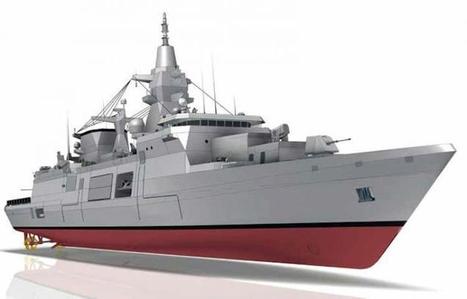

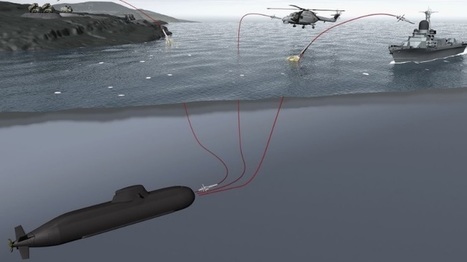
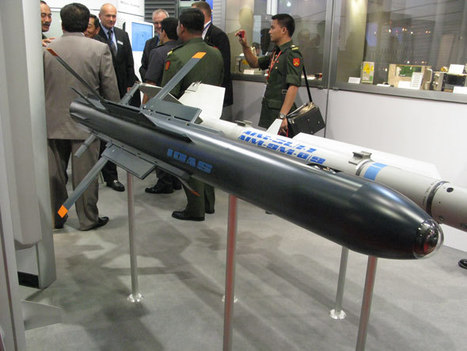
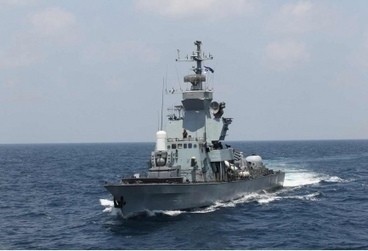
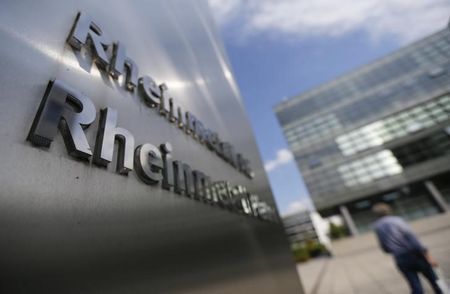
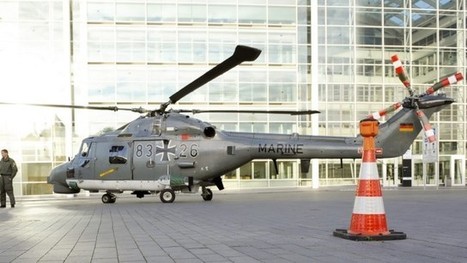
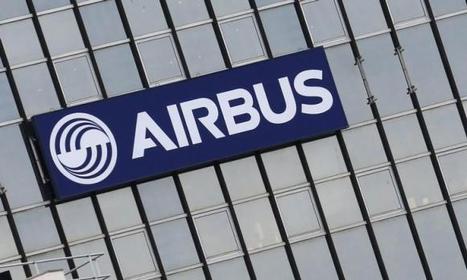
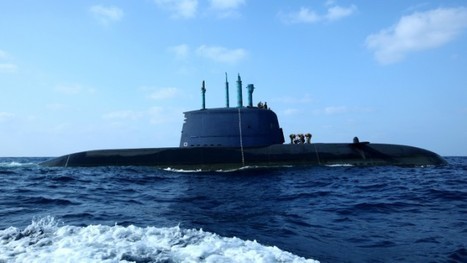

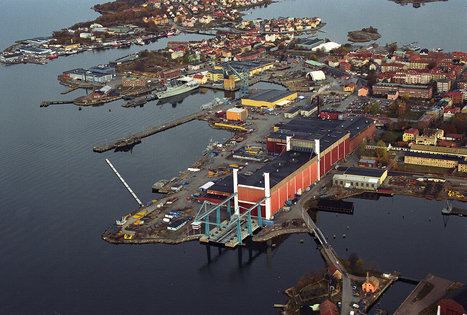
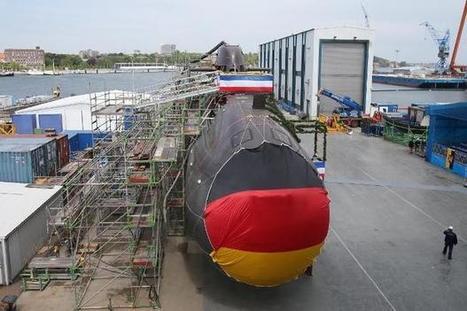
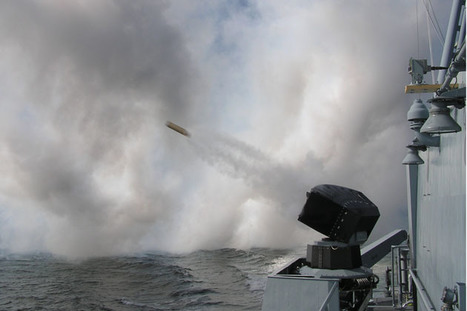
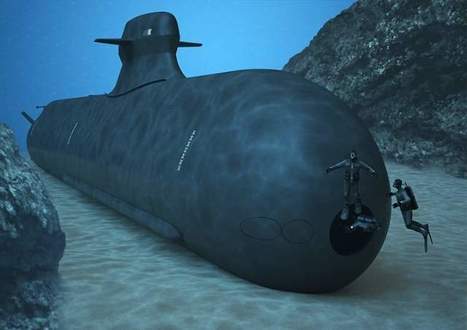
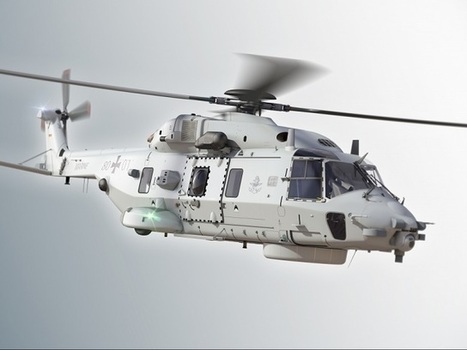
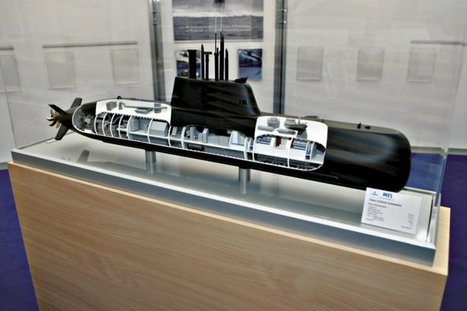
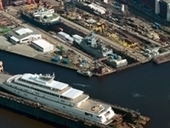
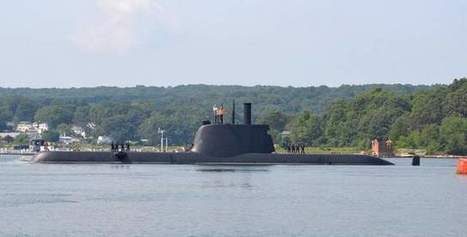
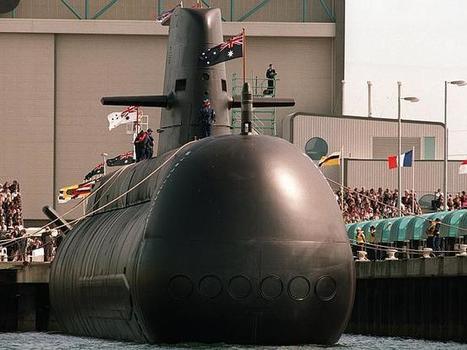
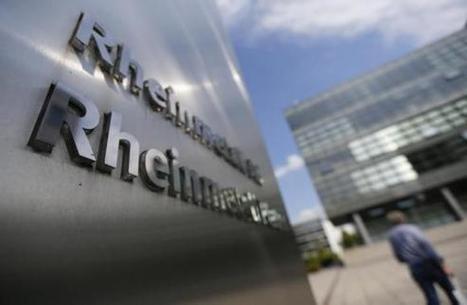

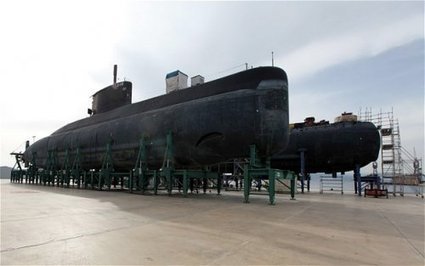
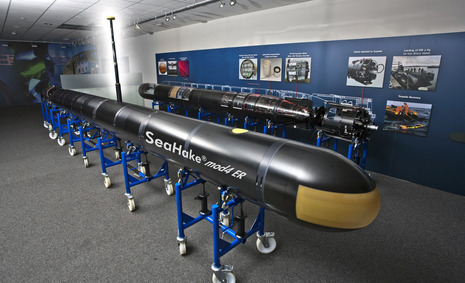
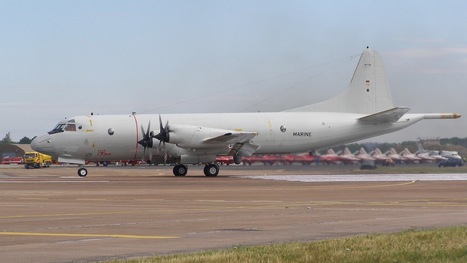
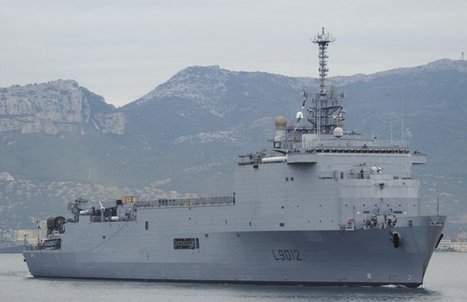
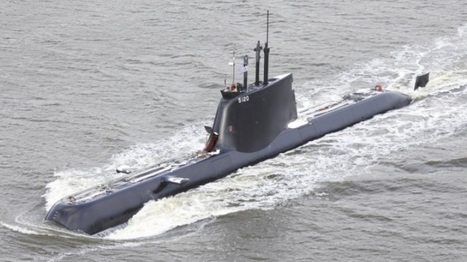





L'industriel allemand Lürssen serait sur les rangs pour cet appel d'offre.
Traduction en anglais de l'article original de REUTERS DEUTSCHLAND :
"Berlin (Reuters) - The common development of a German Dutch Mehrzweckkampfschiffes is according to military data virtually from the table.
The abilities demanded by the countries of the ships are too different, said a representative from military circles on Thursday of the news agency Reuters. The Netherlands wanted a ASW frigate, while Germany wants to use the ships adaptably for different duties. However, a cooperation with components is further conceivable. The project should be written out anyway European, one said in circles of the ministry of defence. The armed forces have a budget of a good 2.5 milliard euros for the purchase of four to six of the new ships with which it should concern bigger, stronger armed frigates. So that the first ship can be delivered in 2023 to the armed forces, the contract must be concluded till 2017.
The new ship with just 100 soldiers occupying should be usable for different application scenarios., Among the rest, it should be able to fire from lake from land aims and to stretch a protective screen more than 20 kilometres away against air raids over other ships. Moreover, the so-called MKS180 should dispose of a very well equipped military hospital. In addition come according to armed forces data other modules which arm the ship for special duties and are presumably installed by means of containers aboard: Modules are checked to the submarine hunt, drones for the sea room supervision, underwater drones to the mine hunt or also a substitute prison for pirates. In Germany the Lürssen shipyard might be interested in the order."